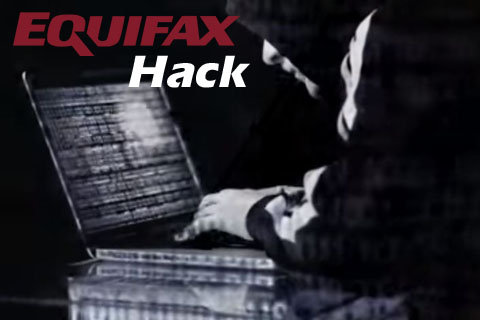Important Tips in Wake of Equifax Hack
District Attorney Summer Stephan warned consumers today to consider taking steps to protect their personal identifying information in the wake of a recent data breach at one of the large credit bureaus in the United States, Equifax. [TWEET THIS]
Cybercriminals stole 143 million credit records in the recent hacking scandal at the big-three credit bureau.
“At this point millions of consumers have to assume that the bad guys have highly personal information that they can use to trick you,” said District Attorney Summer Stephan. “Our ‘CATCH’ team has posted advice for consumers online and I encourage San Diego County residents to consider taking steps to protect themselves.”
Experts say to watch out for the following:
- Phishing (phony) emails that claim to be from Equifax where you can check if your data was compromised.
- Phishing emails that claim there is a problem with a credit card, your credit record, or other personal financial information.
- Calls from scammers that claim they are from your bank or credit union.
- Fraudulent charges on any credit card because your identity was stolen.
- Don’t give out personal information.
Here are five things you can do to prevent identity theft: [TWEET THIS]
- Sign up for credit monitoring (there are many companies providing that service including Equifax, but be sure to read the Terms of Agreement carefully and note if there are any set-up or recurring costs associated with the monitoring.)
- Place a fraud alert with one of the major credit bureaus Equifax, Experian and TransUnion.
- Placing a fraud alert is free and stays on your credit report for 90 days. Check your credit reports for free at www.annualcreditreport.com
- Check your bank and credit card statements for any unauthorized activity.
- If you believe you may have been the victim of identity theft, here are two sites where you can learn more about how to protect yourself: http://www.idtheftcenter.org and www.ftc.gov/idtheft.
EN ESPAÑOL
Desafortunadamente, vivimos en un mundo en el cual este tipo de filtración de datos continua ocurriendo. Cuando esto ocurre, consumidores deben considerar tomar pasos para proteger su información personal.
Criminales cibernéticos ya se robaron 143 millones de registros de crédito en el reciente incidente de Equifax, lo cual indica que millones de consumidores deben asumir que los criminales tienen información muy personal que pueden usar en su contra.
La oficina de la Fiscalía le recomienda al público tomar medidas para protegerse.
Nuestro Equipo de Respuesta en Crímenes de Informática y Alta Tecnología, conocido como CATCH, ya publicó consejos en su pagina Web, y recomienda estar al tanto de lo siguiente:
- Si reciben un correo electrónico que parece ser de parte de Equifax, podría ser un fraude electrónico buscando obtener más datos personales.
- Correos electrónicos fraudulentos podrían decir que hay un problema con su tarjeta de crédito, su registro de crédito, o alguna otra información financiera.
- Llamadas telefónicas de estafadores que aseguran ser de su banco o institución financiera.
- Cualquier cargo fraudulento a sus tarjetas de crédito.
- No dé su información personal.
Cinco cosas que puede hacer para prevenir robo de identidad:
- Suscríbase para monitorear su crédito (hay muchas compañías que ofrecen el servicio, incluyendo Equifax, pero asegúrese de leer los términos del contrato ya que pueden cobrarle por el servicio)
- Ponga una alerta de fraude a través de una de las compañías de crédito como Equifax, Experian y TransUnion. Una alerta de fraude es gratis y permanece en su reporte de crédito por 90 días.
- Revise su reporte de crédito gratis en www.annualcreditreport.com
- Revise su estado de cuenta del banco y tarjetas de crédito para monitorear actividad no autorizada.
- Visite estas páginas de internet para aprender más sobre cómo protegerse: www.idtheftcenter.org y www.ftc.gov/idtheft


